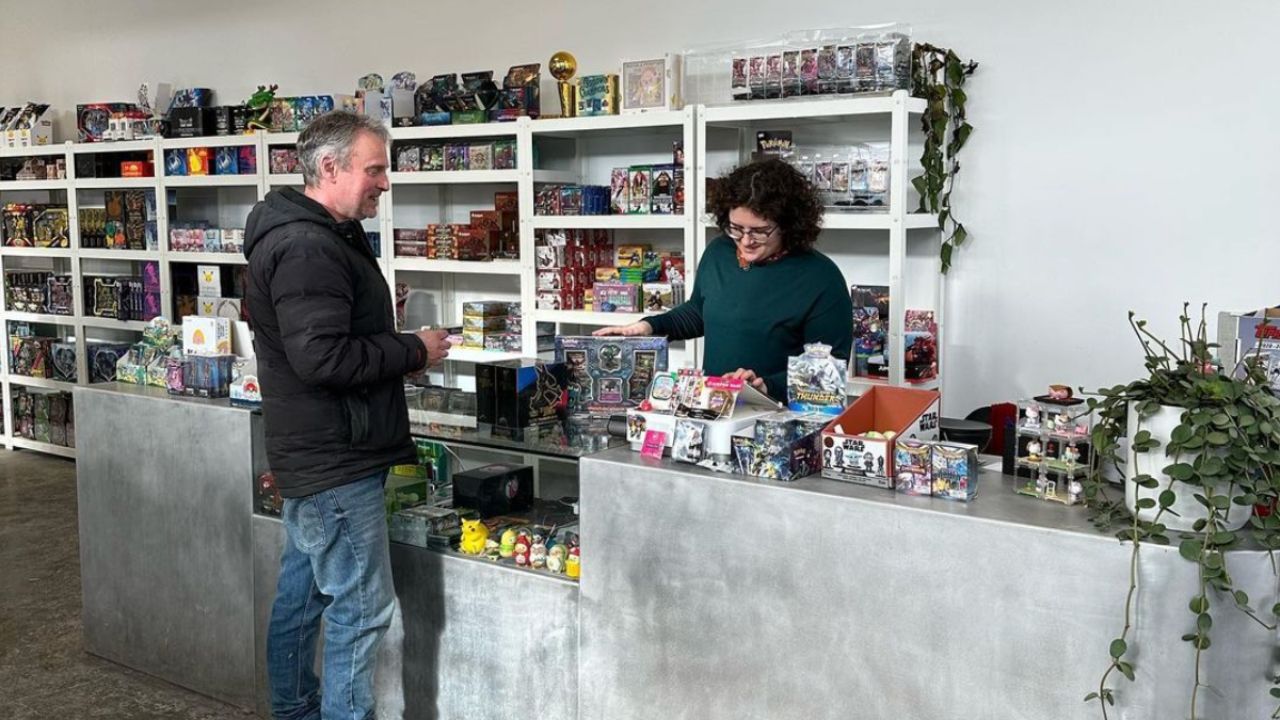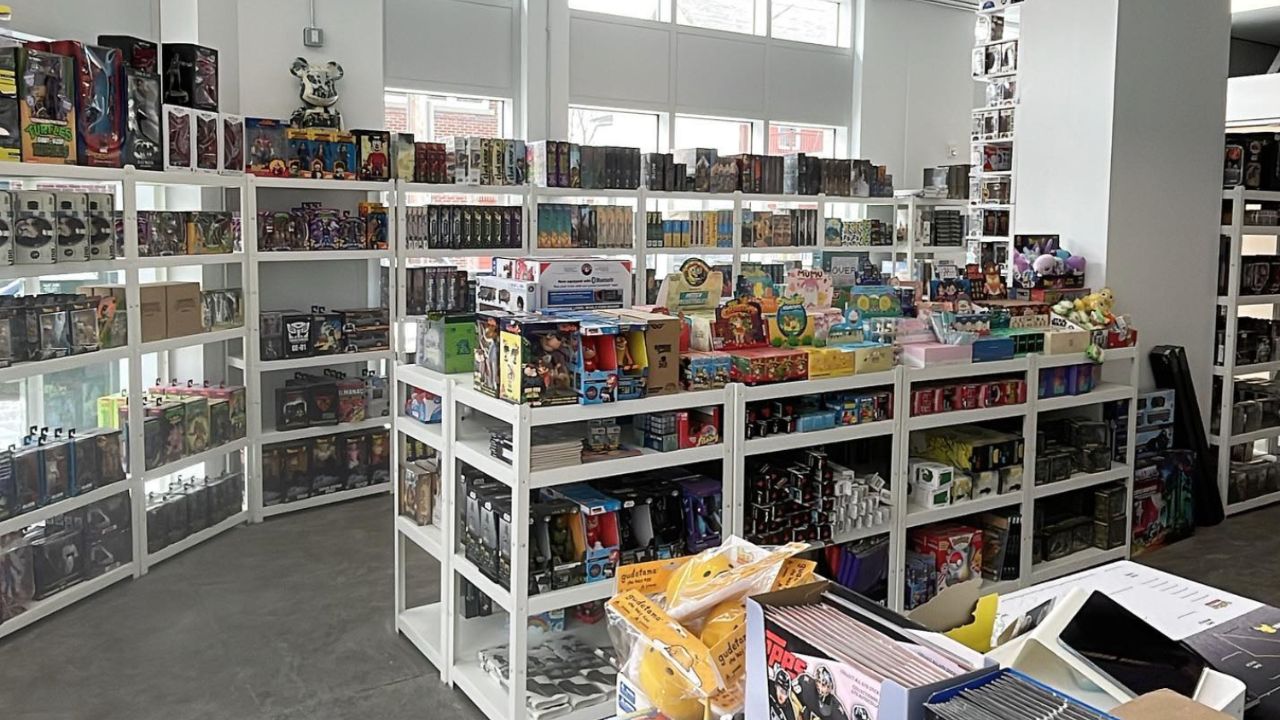When Edmond Georges got a message from a friend who was having success selling long-forgotten Pokemon cards online, he could never have imagined the difference it would make in his life.
Georges’s friend, Logan Fournier, had discovered a forgotten binder of Pokemon cards in his parents’ basement in the summer of 2020.
“(Fournier) sent me a message saying, ‘How do we turn this into a thing?’” says Georges. “It was early summer during COVID. We got together at a coffee shop in the Glebe and did some quick napkin math to take it to the next level.
(Sponsored)

Borden Ladner Gervais LLP and partners lead with generosity
Borden Ladner Gervais LLP (BLG) are no strangers to supporting charities in the nation’s capital. From the Boys & Girls Club of Ottawa to Crohn’s and Colitis Canada to the

Uniting for heart health: A community movement reignites this February
February is Heart Month is here! The Ottawa Heart Institute Foundation has not skipped a beat in preparing for this highly anticipated opportunity for individuals, groups, and businesses to raise
The next level was opening a storefront called Hobbiesville in Kemptville.
“I was hesitant to start Hobbiesville because I had worked a nine-to-five job my whole life, so it was scary to jump into,” recalls Fournier. “I was passionate about it because it was my hobby as a kid and I was excited about it, but also just nervous.”

To gain access to collectible products, a bricks-and-mortar store is required, but Georges says they quickly outgrew the Kemptville location, especially when it came to shipping online orders during the pandemic.
In the first month in Kemptville, Hobbiesville topped out at $750,000 in sales.
“It was $2 million in about three to four months,” Georges says. “It got to a point where Canada Post in Kemptville wasn’t able to fulfill our orders. We had to get out of Kemptville.”
When Hobbiesville first started, Fournier was on parental leave from Shopify after the birth of his son. When he returned to the office, he says, “Hobbiesville was going through its uptick period.”
“I realized I just had to quit (at Shopify),” Fournier laughs. “I lasted a day and realized I couldn’t make it work.”
After a year in Kemptville, Hobbiesville moved to Ottawa in 2021 and has been “in expansion mode ever since,” Georges says.
The business now occupies an 1,800-square-foot store on Somerset Street West, as well as a 4,400-square-foot warehouse. Georges and Fournier, both partners of Hobbiesville, have signed a lease for a store in Toronto about twice the size of the Ottawa location, with plans to open around June.

Alongside a general manager, Fournier will continue to run day-to-day operations for Hobbiesville in Ottawa, including buying products and managing brand relationships. For the Toronto location, the company is hiring a full team of staff, including a general manager.
“It’s been a busy couple of weeks,” laughs Georges.
Hobbiesville sells collectibles, toys and animated figurines, as well as board games, puzzles and Japanese-imported products. The bulk of sales are still trading cards, Georges says, particularly original Pokemon cards, and many products are limited- or special-edition. About 27 per cent of the store’s sales come from Toronto, making it their biggest market, followed by Montreal, with Ottawa coming in third place. The store brings in a “couple million a month in sales,” the partners say.
Georges’s background in cybersecurity and digital marketing has been key to Hobbiesville’s growth.
In addition to the website, which is powered by Shopify, Georges worked with an American partner to develop a mobile app, doing a large part of the design himself. The app is now responsible for 40 per cent of Hobbiesville’s sales.
“It’s very immersive and a more engaging experience,” explains Georges.
With the app, customers can get notifications of a “hot drop — something that will be popular or a sell-out and hyper-competitive products or really in-demand products,” Georges says.
He predicts the Hobbiesville stores will reach $40 million in sales per year within the next two years. Georges says the pair plans to expand into the U.S., establish stores in every major Canadian city, and continue to focus on creating an “immersive experience.”

“It’s common in Japan that these stores have the music, visuals, atmosphere — every one of your senses being tapped,” Georges says. “Collectible stores in North America are almost always in an off-street strip mall with worn shelves. The whole experiential aspect is missing, it’s just a spot that sells stuff.
“We built ours to be a boutique,” he continues. “With that more immersive experience, we can continue to give people a portal to Japan with snacks, food, music … because Japan is the main market for a lot of these products.”
One of Hobbiesville’s most unique products is the “Japanese mystery crate.”
“What’s interesting is they have a box with about 18 to 20 items and a guide to explain the story of the different products,” Georges says. “They could be drinks, snacks, gummies, just things you can’t buy at a corner store today.
“Right now, we’re on a path to become a household name for collectibles,” he says. “Like a Toys R Us for adults.”
As someone who is “in it every day,” Fournier, now father to a three-year-old son and a six-month-old daughter, says he’s “super excited” to see where the future takes him and the company.
“The journey has been super exciting, being able to refresh the hobby industry and making it something more enjoyable for people outside of the industry,” he says. “Maybe my son will work here one day.”






